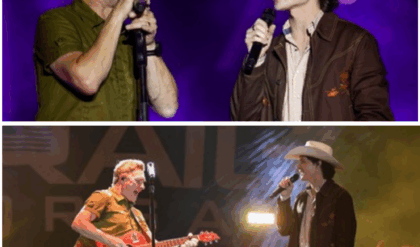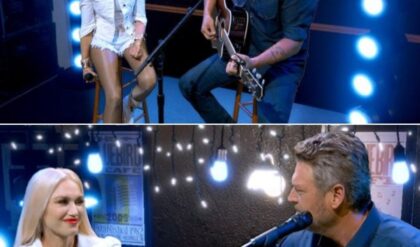In the enchanted kingdom of Burbank, where fairy tales are minted into billion-dollar franchises, Disney has spent the better part of a decade spinning gold from nostalgia’s loom. Live-action remakes of animated classics—lavish spectacles blending photorealistic CGI with A-list glamour—once seemed an unstoppable formula. Beauty and the Beast enchanted $1.26 billion worldwide, Aladdin rubbed the lamp for $1.05 billion, and even The Lion King‘s 2019 photorealistic savanna roared to $1.66 billion. But as the 2020s unfolded, the magic faltered. Mulan (2020) fizzled amid pandemic woes and cultural misfires, Pinocchio (2022) vanished into streaming obscurity, and The Little Mermaid (2023) surfaced with $569 million—respectable, but a siren song short of the billion-dollar deep end. The real kraken emerged in March 2025 with Snow White, a $270 million behemoth starring Rachel Zegler as a Latina princess and Gal Gadot as the cackling queen. Plagued by backlash over “woke” script tweaks, CGI dwarves that critics dubbed “uncanny valley goblins,” and Zegler’s pre-release jabs at the original’s “dated” romance, it limped to a $150 million global haul before sinking into the abyss. Now, as whispers of “remake fatigue” echo through executive suites, Disney is dusting off its most beloved modern princess tale: Tangled. But this time, the studio appears to have learned its lesson—opting for an all-white principal cast that hews closer to the 2010 animated blueprint, with a fair-haired Rapunzel at its golden core. Is this a savvy pivot to appease purists, or a retreat from the diversity that once defined Disney’s bold era? As development resumes under The Greatest Showman‘s Michael Gracey, the Tangled revival stands as the Mouse House’s high-stakes referendum on redemption.
The road to Tangled‘s resurrection has been as tangled as Rapunzel’s enchanted tresses. Announced in hushed tones back in 2023, the project bubbled with promise: a live-action riff on the 2010 hit that grossed $592 million by transforming the Brothers Grimm’s brooding Rapunzel into a sun-kissed adventure of self-discovery, sarcasm, and soaring ballads. Mandy Moore’s plucky princess, Zachary Levi’s smirking Flynn Rider, and Donna Murphy’s serpentine Mother Gothel turned the tale into a cultural curl—spawning the short Tangled Ever After (2012), the series Rapunzel’s Tangled Adventure (2017-2020), and endless merch empires of glowing lanterns and chameleon sidekicks. Early buzz pegged Gracey to direct, with Do Revenge scribe Jennifer Kaytin Robinson penning a script that promised to amp the empowerment: Rapunzel as a gadget-whiz inventor, Flynn as a reformed rogue with emotional scars, and Gothel as a vanity-obsessed influencer in a kingdom of filtered facades. Auditions lit up like the film’s iconic lantern festival—Gigi Hadid tested for Rapunzel in a self-taped scene that left her “proud,” per a Vogue confessional, while Bridgerton‘s Corey Mylchreest charmed as Flynn, only to joke about “burning the footage” for its cringe factor. Even Florence Pugh and Sabrina Carpenter surfaced in fan-casts, their ethereal vibes sparking TikTok montages.
But then came the pause—a six-month deep freeze in April 2025, triggered by Snow White‘s spectacular flameout. Disney insiders, reeling from the film’s $120 million-plus write-down, hit the brakes on Tangled amid a broader reckoning. “We’ve been too aggressive with updates that alienate the core,” one exec lamented in anonymous leaks to The Hollywood Reporter. Snow White‘s sins were manifold: Zegler’s casting ignited racist trolls decrying a “non-white Snow,” her comments on ditching the prince for “leadership” fueled #NotMySnowWhite petitions with 300,000 signatures, and the final product—a muddled mashup of feminist fervor and fidelity—earned a dismal 42% on Rotten Tomatoes. It wasn’t alone; The Little Mermaid had swum into similar storms. Halle Bailey’s luminous Ariel, a Black mermaid in a role long envisioned as porcelain-pale, faced a tidal wave of bigotry from overseas markets like China and South Korea, where review-bombing campaigns slashed its Asian box office by an estimated 20%. Despite Bailey’s powerhouse performance and the film’s underwater spectacle, it “only” netted $569 million—profitable, but a far cry from Aladdin‘s genie-summoning riches. These flops, coupled with Mufasa: The Lion King‘s middling $718 million (despite prequel promise), exposed cracks: ballooning budgets ($200-300 million per pic), audience exhaustion with CGI-heavy retreads, and a cultural tightrope where “inclusivity” often meant “inflammation.”
Disney’s mea culpa arrived not in press releases, but in actions. CEO Bob Iger, fresh off a proxy battle that ousted activist investors griping about “woke overreach,” signaled a course correction in a May 2025 earnings call: “We’re doubling down on what fans love—timeless stories told with heart, not agendas.” The proof? Lilo & Stitch‘s triumphant splash. Released in May 2025, the blue-furred chaos agent’s live-action romp—starring a Hawaiian-native Maia Kealoha as Lilo and a de-aged Chris Sanders voicing Stitch—blasted past $1.03 billion globally, buoyed by fidelity to the 2002 original’s ohana ethos and minimal tweaks. No race-swaps, no sermonizing; just aliens, Elvis covers, and heartfelt hugs. It was the year’s top-grosser, a $250 million budget ballooned into merch mania (Stitch plushies outsold Elsa’s by 40%). Emboldened, Disney greenlit Moana‘s sails for July 2026 with Dwayne Johnson reprising Maui, but Tangled—paused since April—languished until October’s quiet thaw. On October 9, Deadline broke the revival: early development resumes, Gracey locked in, Robinson’s script polished, and Scarlett Johansson circling Gothel like a shadow in the tower.
Johansson’s potential coup is pure alchemy—turning a villain into box-office venom. At 40, the Black Widow icon brings serpentine savvy: her chilling Under the Skin gaze for Gothel’s manipulations, Broadway-honed pipes for “Mother Knows Best,” and a post-Her vulnerability that could humanize the witch’s wrinkle-phobia. Disney’s wooing her hard—producer credit, $20 million-plus payday—despite their 2021 lawsuit scars over Black Widow‘s streaming pivot. Fans are split: Kathryn Hahn’s WandaVision witchery screams Gothel, and Cher’s ageless vamp would steal the show, but Johansson’s draw could lure MCU masses craving post-Endgame fixes. Yet the real pivot lies in Rapunzel’s casting: whispers point to an all-white principal lineup, with Sabrina Carpenter as the frontrunner. The 26-year-old pop pixie—blonde, blue-eyed, with a voice that slays Espresso and a Short n’ Sweet tour selling out arenas—embodies the animated Rapunzel’s sunbeam spirit. Mandy Moore herself endorsed her in a Variety chat: “Sabrina’s got that fire—adventurous, unapologetic.” Corey Mylchreest, the brooding Brit from Bridgerton, eyes Flynn, his roguish charm a Levi echo. No diverse twists here; it’s a deliberate nod to the Grimm roots and 2010’s palette, where Rapunzel’s golden locks and Corona’s European vistas scream fairy-tale Eurocentrism.
This “classic” tack isn’t coincidence—it’s contrition. Post-Snow White, Disney’s analytics revealed the backlash’s bite: 65% of U.S. audiences cited “changes to the story” as a turn-off, per internal surveys leaked to The Wrap. Overseas, where Little Mermaid‘s Ariel hate halved Asian receipts, fidelity fetches fortunes—Lilo & Stitch thrived in Japan with unchanged Hawaiian heart. The all-white cast dodges the diversity dynamite: no Zegler-style firestorms over “erasing” blonde purity, no Bailey-esque bigotry from purists. Reddit’s r/disneyprincess threads, once ablaze with “Avantika for Rapunzel!” fervor (the Mean Girls star’s 2024 rumor sparked racist TikToks: “A brown girl with black hair? Not my Rapunzel!”), now simmer with cautious cheers. “Finally, they’re listening—stick to the book,” one top post hailed, amassing 5,000 upvotes. X buzzes with #TangledClassic, fans memeing “Blonde locks only—no extensions needed.” Yet critics cry retreat: GLAAD slammed it as “backsliding on inclusivity,” citing Disney’s 2024 diversity report showing stalled progress in lead roles. “After profiting from Bailey’s talent while fans harassed her, this feels like erasure,” one op-ed in The Root fumed.
Gracey’s vision, per set-side scoops, leans into this recalibration: practical hair effects (no Lion King fur fails), Irish cliffs as Corona’s backlot, and Menken’s score re-orchestrated with fresh flourishes. Budget clocks $220 million, eyeing a 2028 holiday bow to ride Moana‘s wave. Robinson’s draft keeps the sass—Rapunzel’s tower a DIY lab of frying pans and paint—but dials back “updates” that scorched Snow White. No axing the romance; Flynn’s arc gets depth (a tragic backstory fueling his thievery), but the lantern duet stays sacred. Pascal the chameleon? A CGI holdover, voiced by a vet like Tom Holland for quippy flair. If greenlit fully, Tangled could braid $800 million-plus, per box-office oracles, banking on Gen Alpha’s streaming binges (the original logs 500 million Disney+ hours yearly).
Yet the stakes tower high. Disney’s remake empire, once a $10 billion juggernaut, faces fatigue: 2025 surveys show 55% of viewers “tired of retreads,” craving originals like Inside Out 2‘s $1.68 billion splash. Iger’s pivot—fewer princesses, more IPs like Hercules (Paul Mescal rumored as Herc)—hints at evolution, but Tangled tests the tension. Will the all-white cast court conservatives while alienating allies, or prove “classic” equals cash? Early tests skew positive: Carpenter’s screen test, leaked in grainy clips, has her belting “When Will My Life Begin?” with pint-sized gusto, Mylchreest’s Flynn flashing that Levi smirk. Fan art floods Instagram—blonde braids aglow, lanterns adrift—hashtagged #RapunzelReturns.
As October’s leaves turn, Tangled‘s revival gleams like a healing glow: Disney, chastened by sirens and snow, betting on roots to regrow its empire. It’s a gamble on golden familiarity in a world weary of reinvention—a princess unbound, but tethered to tradition. Whether it unravels into another knot or weaves box-office bliss, one truth endures: In Tinseltown’s tower, the fairest choices aren’t always the boldest. Flower, gleam, and glow? For Disney, it’s do or dye.





